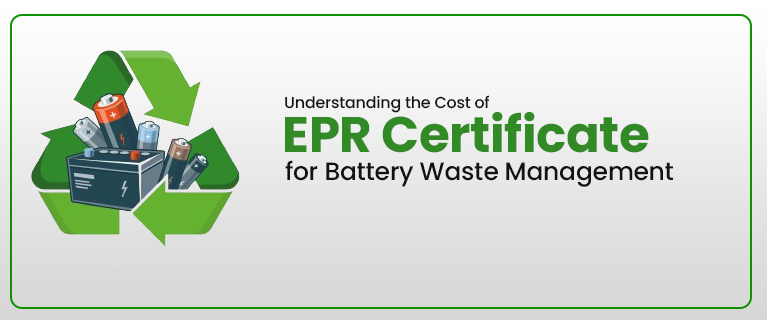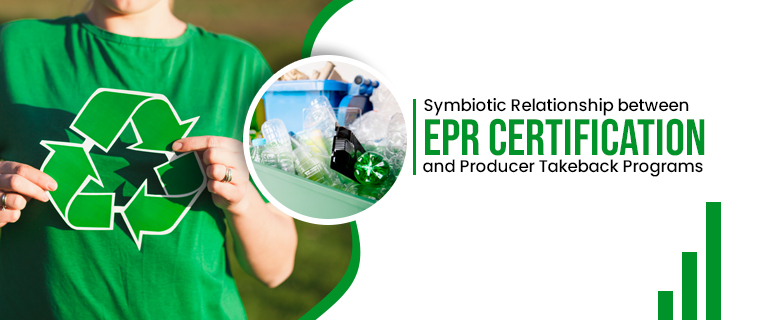Understanding the Cost of EPR Certificate for Battery Waste Management
The increasing reliance on electronic devices has led to a surge in the consumption of batteries, raising concerns about proper waste management. To address this issue, Extended Producer Responsibility (EPR) programs have been implemented globally, aiming to make producers accountable for the entire life cycle of their products, including proper disposal. In this blog, we will delve into the cost implications of obtaining an EPR certificate for battery waste management.
1. EPR Basics:
A policy known as "Extended Producer Responsibility" holds producers accountable for the impacts of their products on the environment. In the context of batteries, this means producers are obligated to manage and properly dispose of batteries at the end of their life cycle. To fulfill this responsibility, manufacturers often need to obtain an EPR certificate.
Read also this-: EPR & Battery Waste Management Regulations in India2. Regulatory Landscape:
The cost of obtaining an EPR certificate is influenced by the regulatory framework in a particular region. Different countries and jurisdictions have varying EPR regulations, leading to differences in certification processes and associated costs. Understanding the specific requirements in a given area is crucial for accurate cost estimation.
3. Certification Process:
The certification process for an EPR certificate involves several steps. Manufacturers must demonstrate their commitment to responsible battery waste management through detailed plans and strategies. This process incurs costs related to documentation, audits, and compliance checks. The complexity of the certification process contributes to the overall cost.
4. Environmental Impact Assessment:
Part of the EPR certification process involves assessing the environmental impact of battery waste generated by a producer's products. This assessment adds to the cost, as it requires specialized expertise and analysis. Manufacturers may need to invest in studies and reports to evaluate the ecological footprint of their products.
5. Infrastructure Investment:
To effectively manage battery waste, producers often need to invest in infrastructure for collection, transportation, and recycling facilities. These infrastructure costs are considered part of the overall cost of EPR certification. Establishing a robust system for collecting and recycling batteries ensures compliance with EPR obligations but comes with its own financial burden.
6. Recycling Technologies:
Incorporating environmentally friendly recycling technologies is a crucial aspect of EPR compliance. Manufacturers might need to invest in advanced recycling processes that minimize environmental impact. The adoption of innovative technologies ensures that the recycling methods align with sustainability goals, but it can increase the overall cost of EPR certification.
7. Volume and Type of Batteries:
The type and volume of batteries produced by a manufacturer also play a role in determining the cost of EPR certification. Different batteries require distinct recycling processes, and larger production volumes contribute to higher waste management costs. Manufacturers producing a diverse range of batteries may face additional challenges and expenses in meeting EPR obligations.
Read also this-: The Soaring Popularity of EPR Certification Consultants8. Market Competition:
The competitive landscape within an industry can impact the cost of EPR certification. Manufacturers operating in sectors with high environmental awareness and competition may voluntarily invest more in sustainable practices to gain a competitive edge. While this may lead to higher upfront costs, it can also enhance the brand's reputation and market positioning.
Conclusion:
The cost of obtaining an EPR certificate for battery waste management is a multifaceted consideration. It encompasses regulatory compliance, certification processes, environmental impact assessments, infrastructure investments, recycling technologies, and the volume and type of batteries produced. While the upfront costs may seem significant, the long-term benefits include environmental sustainability, regulatory compliance, and positive brand image. As the global focus on responsible waste management intensifies, the cost of EPR certification becomes not just a financial consideration but a strategic investment in the future of sustainable business practices.




Comments
Post a Comment